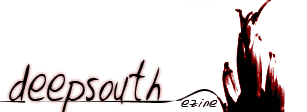Lamentations
1.
this is a lament for the land of the long white cloud, for the hills and valleys carved by southern sunshine, for the white sea-foam and the sea-green sea, for Fiona and Fiona and Fiona, for the many Fionas, for all the Fionas, for the whalers’ ghosts who haunt the coast off Kaikoura, for the town destroyed by earthquake and rebuilt Art Deco, for the Fiona from Taranaki, for the Wellington Fiona, for the Fiona I met that night we drank dollar champagne at the Woolshed, for Fiona and Fiona and Fiona, for the skeleton of the giant moa at Te Papa, for the path the sun travels across the southern sky, for her American lover who went to Peru, for her Indian lover who stayed, for the secret name she never told me,
for the other Fionas,
and for Fiona.
2.
gone as if she were gone,
as his mother had gone, as her grandmother had gone, as if going were all that’s gone, as if this form, this waiata tangi that is not a waiata tangi, could be expanded to encompass multitudes, but this is not my form to claim, this is not my claim to form, this is a lament for Wilma and Mildred and Helene, for Ivah and Rose and Edith, for this rocky coast looking out across the Pacific toward that other rocky coast, looking west, looking east,
just looking.
3.
and the scent of yellow flowers hangs heavy in the air.
4.
lamentation of dust clouds and salt flats, of the westward journey and journey’s end, lamentation of the lumber camps of Idaho and Washington, of the lakes and pine forests, lamentation of the sudden summer thunderstorms, of the plywood mill she worked in during the second war, lamentation of San Francisco, of the fog that lies close along the city like a lover, this is a lament for Wilma, a lamentation of her first husband, now divorced, of her second husband, now deceased, of her three children, now grown, lamentation of dreams, lamentation of passion, lamentation of hope, lamentation of stories retold many times, of this story retold many times.
5.
the mourning, how it stretches out at the edges, thinning like breath in the morning air, a translucent transparency, and the center cannot hold, it grows vague and dark, the bay and the island and the fog like smeared charcoal, a transparent translucence, the view of the harbor out the window or stopping to watch the sunset on the drive home, the shipwreck, the lighthouse, the captain says mistakes were made, the sailors’ ghosts off the point and the sawmill up the coast, a weeping, and a weeping, and a weeping, her ashes scattered in the bay.
6.
this is a symbolic discussion, or, it isn’t, this lament for Wilma and Helene, for Mildred and Ivah, for Edith and Rose, this lament for Fiona, for the flat in Kelburn and the apartment in the Sunset, each face blurring into another, each story retold in another city, as if I were painting a mural downtown and the wall were crumbling under the brush, the painting, this litany of names, a symbol, like the noise of a crowd, a room with a view of the harbor, blue shading violet and gray, the vague smear of charcoal, or if she was gone, she and she and she, still gone, not gone.
7.
looking east, looking west,
just looking.
8.
like ashes, or snow, the blossoms drifting in the wind, a scattering of butterflies and the calla lilies are in bloom, like viewing the photographs she carried in her purse, I saw the rain blow sideways, saw the faces disappear in fog, she and she and she, the view of the garden at breakfast, the waves breaking on the coast, the river heavy with mud and rain, heavy with forgetting, and the remembering that flashes like dawn, the sun rising out of the Pacific at Kaikoura, a gravel beach and black seals like boulders, or the sun setting into the Pacific at Mendocino, a single sea lion resting on the sand,
each gone in her own way, irrevocably gone.
© Loretta Clodfelter. All rights reserved.
back

